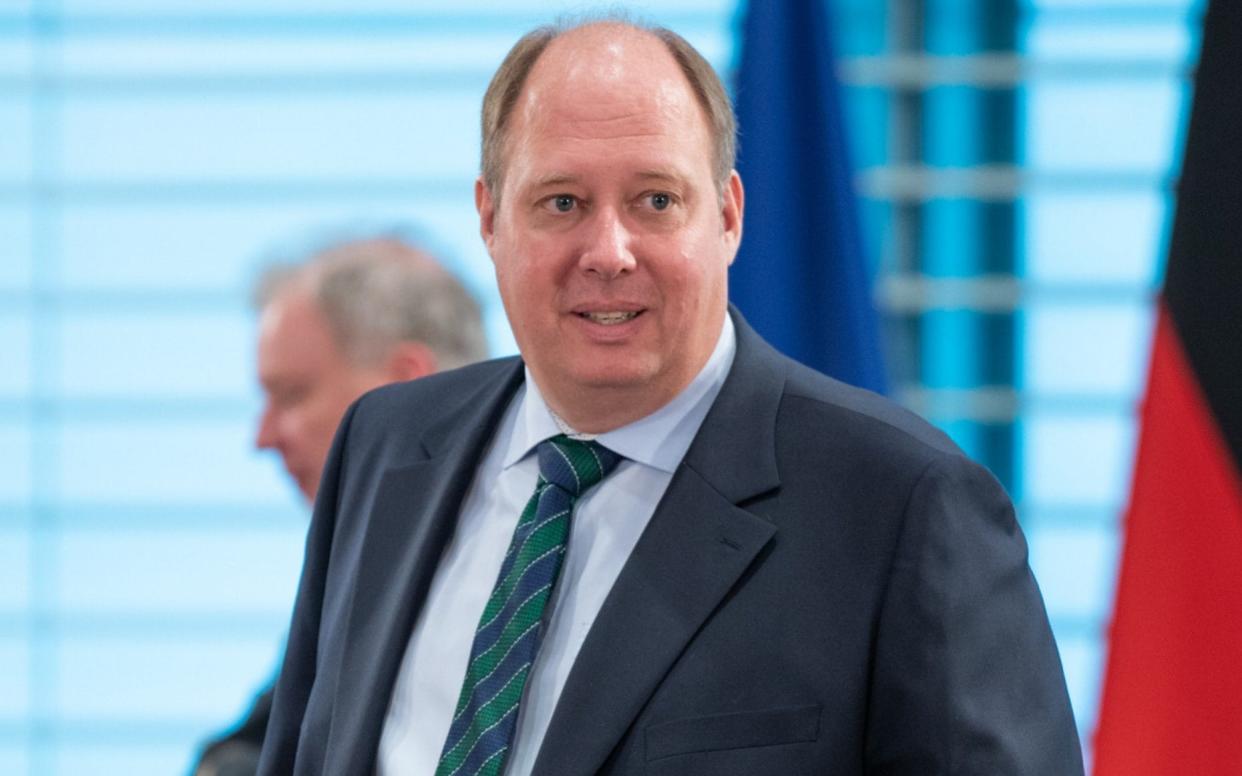Top Merkel ally backs suspension of Germany's strict debt rules

- Oops!Something went wrong.Please try again later.
A leading ally of Angela Merkel has called for Germany to suspend its strict deficit rules for several years in a significant intervention that could open the door to a more relaxed fiscal stance from Berlin.
Helge Braun, the German Chancellor’s chief of staff, argued the country’s debt brake “cannot be adhered to in the coming years” even with tough spending curbs.
In a departure from his party’s ultra-prudent approach, Mr Braun said in newspaper Handelsblatt that Berlin should be able to issue more debt for several years but have a “clear date” for the rule to return.
Senior Christian Democratic Union members distanced themselves from the idea with the party’s new chair Armin Laschet reportedly saying the debt brake “must stay”. Eckhardt Rehberg, the CDU’s budgetary spokesperson, said the strict budget rule limiting spending was non-negotiable.
The debt brake is enshrined in Germany’s constitution and limits new borrowing to just 0.35pc of economic output except in times of crisis.

Berlin has splashed out to rescue Europe’s biggest economy during the pandemic but its budget plans signal a return to the prudent approach from 2022. Governments have been warned by the International Monetary Fund and OECD that cutting spending too soon could undermine the economy’s recovery.
Facing a backlash from his party, Mr Braun insisted in a tweet that he “loved” the debt brake and that his proposal did not question the rule.
However, the CDU’s position on borrowing could be tested after elections in September when Ms Merkel will step down.
Polling suggests the Greens could become the junior partner of a coalition government after leap-frogging the SPD into second place. The Greens have backed a shake-up of the country’s debt stance to ramp up low levels of public investment.
It came as former finance minister Wolfgang Schäuble - the architect of Germany’s tough fiscal stance after the financial crisis - suggested he is more open to reform of the EU’s borrowing rules.
Italy and France have called for an overhaul of EU rules that limit the deficit at 3pc of GDP and debt at 60pc as borrowing soars across the region.
“After the pandemic a lot of things will be completely different to the way they were before,” he said in an interview with the Financial Times. “Whether they’ll be better depends on us.”

